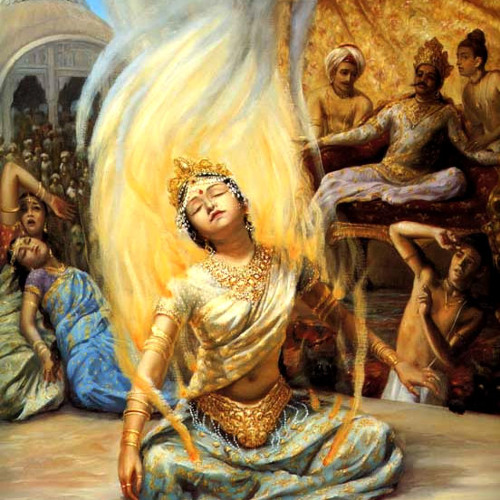
#Thread #DHARMA #STORIES
TEMPLES OF KAŚI: ATMA VIREŚVARA
1/5
King Amitrajit conquered his enemies and ruled righteously. From his wife Malayagandini he begot a son Vīra. The boy was born under inauspicious star and hence the minister of king advised queen Malayagandini
TEMPLES OF KAŚI: ATMA VIREŚVARA
1/5
King Amitrajit conquered his enemies and ruled righteously. From his wife Malayagandini he begot a son Vīra. The boy was born under inauspicious star and hence the minister of king advised queen Malayagandini

2/5
that she should immediately abandon her son else the king will meet his death.
On hearing this, the queen called her servant and asked her to take the new born child to Vikatā Devi and submit the child in front of Devi. The queen's servant did as she was instructed.
that she should immediately abandon her son else the king will meet his death.
On hearing this, the queen called her servant and asked her to take the new born child to Vikatā Devi and submit the child in front of Devi. The queen's servant did as she was instructed.
3/5
The goddesss Vikatā on seeing the child gracefully shining like a moon summoned Yoginïs and asked them to take the child to Mother-deities (Mātrgana) and request them to protect the child.
With the blessing of Siddhi, the child immediately turned 16 year old.
The goddesss Vikatā on seeing the child gracefully shining like a moon summoned Yoginïs and asked them to take the child to Mother-deities (Mātrgana) and request them to protect the child.
With the blessing of Siddhi, the child immediately turned 16 year old.
4/5
Mātrgana then asked the child to be taken to Kaśi where he was instructed to meditate on Lord Śiva.
The child Vīra mediated on Lord Śiva in Kaśi and Lord appeared before him in the form of Lińga. Lord Śiva took away all the past karma of the boy and told the boy to ask for
Mātrgana then asked the child to be taken to Kaśi where he was instructed to meditate on Lord Śiva.
The child Vīra mediated on Lord Śiva in Kaśi and Lord appeared before him in the form of Lińga. Lord Śiva took away all the past karma of the boy and told the boy to ask for
5/5
a boon to which the boy requested Lord Śiva to stay there always. Lord Śiva stayed back in Kaśi as Atma Vireśvara Linga.
It is auspicious to worship Atma Vireśvara by keeping awake on Chaturdasi nights.
Atma Vireśvara is said to bless childless couples with a child.
a boon to which the boy requested Lord Śiva to stay there always. Lord Śiva stayed back in Kaśi as Atma Vireśvara Linga.
It is auspicious to worship Atma Vireśvara by keeping awake on Chaturdasi nights.
Atma Vireśvara is said to bless childless couples with a child.
• • •
Missing some Tweet in this thread? You can try to
force a refresh









